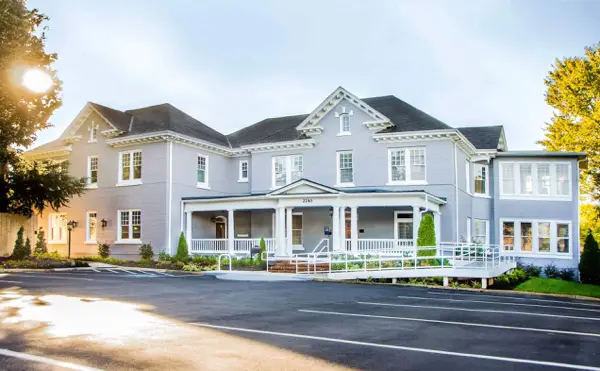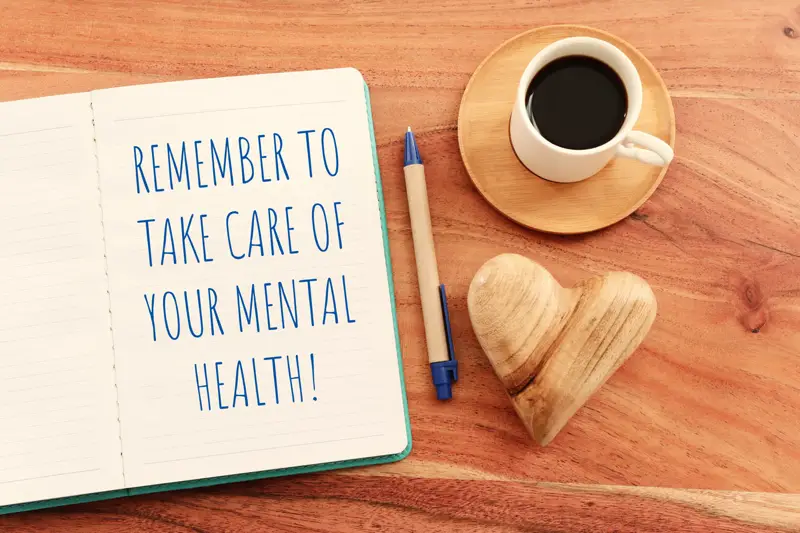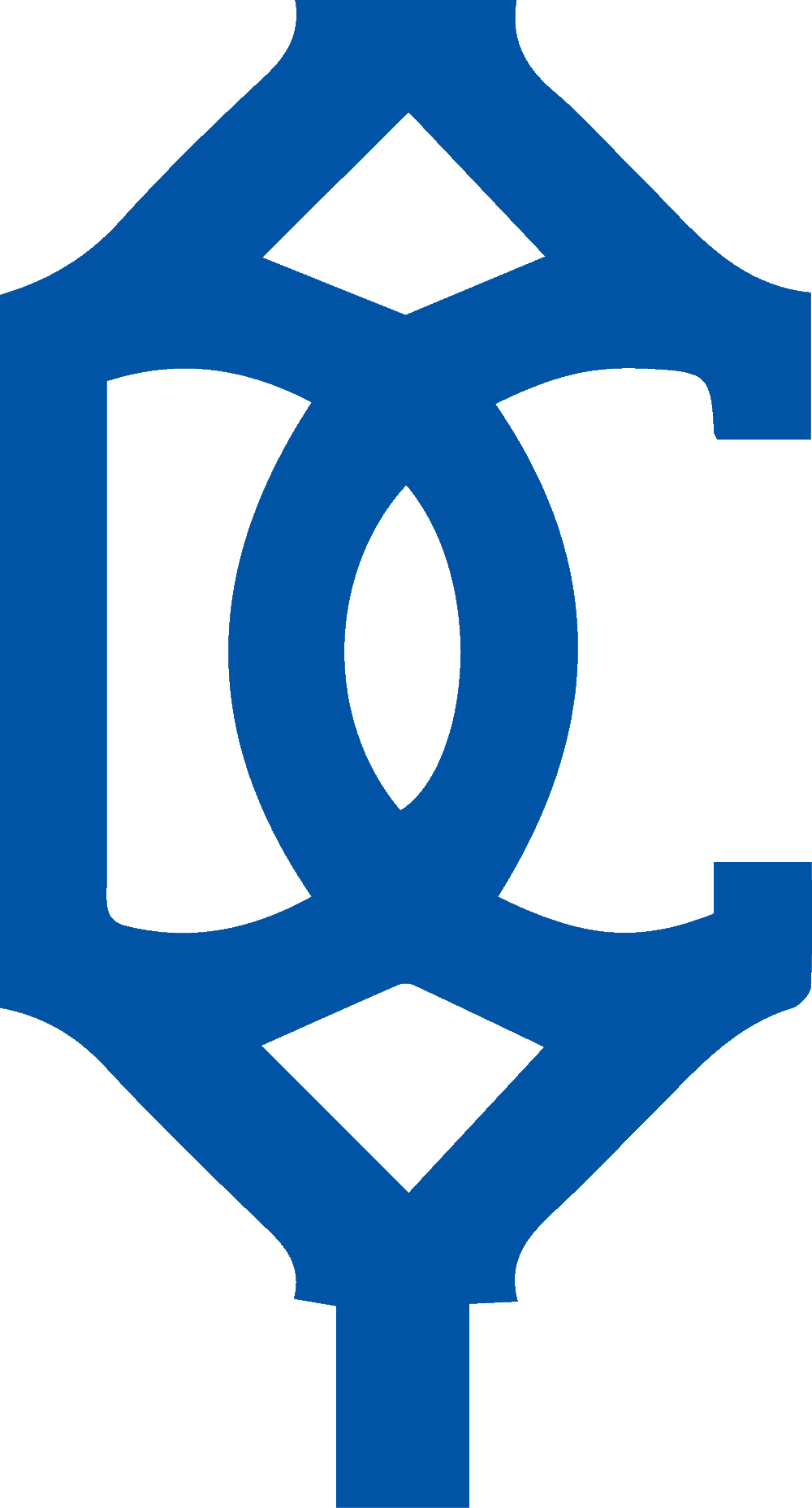Opiate Addiction and Recovery
Opiate addiction can have devastating effects on an individual’s life, impacting their health, relationships, and overall well-being.
Dilworth Center offers specialized treatment programs to help individuals overcome opiate dependence and achieve long-term recovery. Our experienced professionals use evidence-based practices to address both the physical and psychological aspects of opiate addiction. Located in Charlotte, NC, our center provides a supportive and compassionate environment for healing. Whether you’re looking for support in managing opiate withdrawal or beginning the path toward lasting recovery, Dilworth Center is here to guide you every step of the way. Explore our comprehensive opiate recovery services and take the first step towards a healthier, sober life.
Understanding Opiate Addiction
Effects on Humans
Opiates, including prescription painkillers like Vicodin and oxycodone, can provide effective pain relief but also carry a high risk of addiction. Prolonged use can lead to physical dependence and a range of health issues, including respiratory problems, gastrointestinal distress, and cognitive impairments. Managing opiate withdrawal is a significant challenge, as symptoms can include severe pain, nausea, and anxiety. Recognizing the signs of painkiller addiction and understanding the dangers of narcotic withdrawal is crucial for those seeking recovery.

The History of Opiate Addiction
The history of opiate use and addiction dates back thousands of years, with its origins rooted in ancient civilizations. The opium poppy, from which opiates are derived, has been cultivated since prehistoric times. Evidence suggests that the Sumerians, one of the earliest civilizations, were using opium as far back as 3400 BC. They referred to it as the “joy plant,” indicating its psychoactive properties.

Ancient Use of Opiates
In ancient Egypt, opium was widely used for medicinal purposes. Medical texts from around 1500 BC document the use of opium to treat pain and induce sleep. Similarly, the ancient Greeks and Romans used opium for its analgesic properties. Hippocrates, the father of medicine, acknowledged opium’s efficacy in treating various ailments, though he also warned of its potential for dependency. Historical accounts from the Roman Empire reveal that opium was a common treatment for a variety of ailments, but misuse often led to addiction. Roman physicians like Galen prescribed opium frequently, and its use became widespread across the empire.
The Spread of Opium and Early Addiction
The spread of opium continued through the Middle Ages, with its use documented in Persia, India, and China. By the 17th century, the recreational use of opium in China became widespread, leading to severe social and health problems. The British East India Company capitalized on this demand, leading to the infamous Opium Wars between Britain and China in the mid-19th century. These conflicts resulted in China being forced to allow the importation of opium, exacerbating the addiction crisis in the region. Historical accounts from this period describe the devastating effects of opium addiction on Chinese society, with widespread addiction leading to economic and social decline.
Modern Developments and Rising Addiction
The 19th century saw significant developments in the field of opiates. Morphine was isolated from opium in 1804 by a German chemist, Friedrich Sertürner, and quickly became a widely used pain reliever, particularly during the American Civil War. However, the addictive properties of morphine soon became apparent. Soldiers returning from the war often suffered from “soldier’s disease,” a term used to describe morphine addiction. In response to this, heroin was synthesized from morphine in 1874 by the Bayer pharmaceutical company, initially marketed as a non-addictive alternative to morphine. Unfortunately, heroin proved to be even more addictive. By the early 20th century, heroin addiction became a significant public health issue, with many historical records highlighting the struggles of individuals trying to overcome their dependency.

The Rise of Prescription Opioids and the Modern Crisis
The late 20th and early 21st centuries witnessed the rise of prescription opioids, which were initially developed to provide effective pain relief. Medications like oxycodone (OxyContin), hydrocodone (Vicodin), and fentanyl became widely prescribed for chronic pain management. While effective for pain relief, these medications also carried a high risk of addiction. The aggressive marketing of these drugs by pharmaceutical companies, coupled with their widespread availability, contributed to the current opioid crisis. Historical accounts from this period highlight the dramatic increase in opioid prescriptions and the subsequent rise in addiction rates and overdose deaths.
The Opioid Crisis and Efforts to Combat It
The opioid crisis has led to widespread addiction, overdose deaths, and significant public health challenges. Efforts to address the crisis have included stricter regulations on opioid prescriptions, increased availability of addiction treatment services, and public health campaigns to raise awareness about the risks of opioid use.
Understanding the historical context of opiates for pain relief and the evolution of narcotic dependent populations highlights the importance of seeking professional help for addiction. Recognizing the dangers of withdrawal from opioids and the necessity of proper medical support during the recovery process is crucial.

Symptoms of Opiate Addiction
Identifying opiate addiction involves recognizing both physical and behavioral symptoms. Common signs include increased tolerance, experiencing withdrawal symptoms like nausea and anxiety, and continued use despite negative consequences. Individuals may also engage in opiate tapering to reduce dependence gradually. Understanding these symptoms and seeking professional support can significantly improve the chances of successful recovery. Dilworth Center offers outpatient opiate treatment, providing the necessary support for overcoming addiction.
The Recovery Journey
Recovery is Possible
Recovering from opiate addiction can be difficult, but with the right support, it is achievable. At Dilworth Center, we offer personalized treatment programs designed to address each individual’s specific needs. Through evidence-based therapies and a compassionate approach, we provide the tools and support necessary for long-term recovery. Whether you’re dealing with Vicodin withdrawals or seeking non-addictive pain killer alternatives, our dedicated team is here to help.

Recovery Expectations
Recovering from opiate addiction is a challenging but achievable process that involves several stages. Each stage is critical for achieving and maintaining long-term sobriety. While every individual may have slight variations of this process, this is a good overview of what to expect.

The First 30 Days : Detox and Initial Adjustment
The first month focuses on detoxing from opiates and managing withdrawal symptoms. This stage is often the most physically challenging part of recovery. Common withdrawal symptoms include nausea, vomiting, muscle aches, anxiety, and insomnia. Professional support is essential during this phase to ensure safety and comfort. Managing opiate withdrawal effectively requires a supervised environment, often provided by detox centers.

Days 31-90: Building a Foundation
Over the next two months, the focus will be on establishing a strong foundation for recovery. This phase will involve participation in intensive outpatient programs (IOP) or partial hospitalization programs (PHP), which include structured therapy sessions and educational workshops. Common approaches used to address the psychological aspects of addiction during this phase include cognitive-behavioral therapy (CBT) and motivational interviewing. Additionally, group therapy sessions will be held to provide peer support, fostering a sense of community and shared experience. The main goals of this phase are to develop coping strategies, improve emotional regulation, and address any underlying mental health issues.

Days 90-180: Strengthening Recovery Skills
Between days 90 to 180, maintaining sobriety becomes the primary focus. This phase involves continued therapy and support, emphasizing the development of long-term recovery skills. Patients learn to identify triggers and implement relapse prevention strategies. Participation in support groups, such as Narcotics Anonymous (NA), can provide ongoing peer support and accountability. Individual counseling sessions focus on deeper issues, such as trauma, relationships, and personal growth. Building a supportive network of family and friends is also crucial during this stage.

Days 180-365: Achieving Long-Term Goals
The period from days 180 to 365 is about achieving long-term recovery goals and building a sustainable, sober lifestyle. This stage includes regular participation in therapy and support groups, as well as the implementation of healthy daily routines. Engaging in activities that promote physical health, such as exercise and nutrition, is encouraged. Patients are also supported in pursuing personal goals, such as education, career development, and rebuilding relationships. Ongoing relapse prevention plans are adjusted as needed to address new challenges and ensure continued progress. It’s imperative at this stage that the recovered opiate addict takes steps to be of service to those still suffering from addiction.
Beyond Your First Year Free from Opiates
Sustaining sobriety beyond the first year requires continuous effort and support. Engaging in ongoing therapy, participating in support groups, and maintaining healthy lifestyle choices are essential. Building a strong support network and developing a sense of purpose and fulfillment in life help ensure long-term recovery. By committing to a life free from opiates, individuals can achieve long-term sobriety and improved overall well-being.

My Family Member is Addicted to Opiates, What Do I Do?
Supporting a family member who is struggling with opiate addiction can be challenging and emotionally taxing. However, family involvement is crucial in the recovery process. Here’s how you can support your loved one and make a significant impact on their journey to sobriety:
Understanding Opiate Addiction
The first step is to understand the nature of opiate addiction and its effects on the individual. Opiates, including prescription painkillers like Vicodin and oxycodone, are highly addictive. Prolonged use can lead to physical dependence and a range of health issues. Recognizing the signs of addiction, such as narcotic dependency and withdrawal symptoms, is essential. Educating yourself about addiction can also help you communicate more effectively and empathetically with your family member.


Encouraging Professional Help
Encourage your loved one to seek professional help at a reputable addiction treatment center like Dilworth Center. Our programs, including drug rehabilitation for teenagers, young adult rehab, and adult IOP, are designed to provide comprehensive support at every stage of recovery. Professional treatment is crucial for addressing the underlying issues of addiction and developing effective coping strategies. Searching for outpatient opiate treatment near me can help you find accessible options.
Participating in Family Therapy
Family therapy is an essential part of the recovery journey. At Dilworth Center, our family addiction therapy sessions are created to educate family members about addiction, enhance communication, and offer emotional support. These sessions can help you comprehend your loved one’s challenges, develop strategies to support their recovery and tackle any family dynamics that may contribute to the addiction.

Dilworth Center Services
Recovering with Dilworth Center
Dilworth Center is committed to providing personalized addiction treatment programs tailored to meet each individual’s unique needs. Our comprehensive services cover everything from initial assessment to long-term support, ensuring that every patient receives top-quality care. Our programs are based on evidence-backed practices and a compassionate approach to help individuals overcome opiate addiction and achieve lasting sobriety. Whether you’re seeking outpatient treatment options, specialized support for young adults and teenagers, or family therapy services, Dilworth Center offers a program to support your recovery journey. Explore our diverse offerings to find the best fit for your path to sobriety and wellness.

Take the First Step Toward Lasting Opiate Recovery
Are you ready to overcome Opiate addiction? Our expert team at Dilworth Center is here to support you on your path to sobriety. Discover personalized treatment plans that empower long-term recovery. Don’t wait—reach out today and start your journey toward a healthier, Opiate-free life.

Dilworth Center Treatment Programs

Adult Intensive Outpatient Program (IOP)
Our Adult Intensive Outpatient Program (IOP) at Dilworth Center is designed to provide flexible and effective treatment for individuals struggling with opiate addiction. This program offers a structured environment where patients can receive comprehensive care while maintaining their daily responsibilities, making it ideal for those who need support but do not require 24-hour supervision.
Our intensive outpatient drug rehab focuses on helping patients understand the root causes of their addiction and develop the skills needed for long-term recovery. We employ evidence-based therapies, including cognitive-behavioral therapy (CBT) and motivational interviewing, to address the psychological aspects of addiction. Group therapy sessions and individual counseling are integral parts of the program, providing a supportive community and personalized attention.
If you’re looking for intensive outpatient addiction treatment, Dilworth Center’s Adult IOP is a highly recommended choice. Located conveniently in Charlotte, NC, our outpatient drug treatment program offers easy access for local residents. We understand that each individual’s journey to recovery is unique, and our tailored approach ensures that every patient receives the care they need.
Join our Adult IOP and take the first step towards a healthier, sober life. Our commitment to excellence and patient-centered care makes us a leading provider of addiction treatment in the region.

Young Adult Intensive Outpatient Program (IOP)
The Young Adult Intensive Outpatient Program (IOP) at Dilworth Center is tailored to meet the unique needs of young adults struggling with opiate addiction. This program provides a supportive and structured environment where young adults can engage in effective treatment without disrupting their daily lives. Our rehabilitation centers for young adults are designed to address both the physical and psychological aspects of opiate addiction.
Our rehab facilities for young adults focus on helping participants develop coping strategies, build resilience, and establish a solid foundation for long-term recovery. Group therapy sessions offer peer support, while individual counseling ensures personalized care. Located in Charlotte, NC, our center is easily accessible for those seeking rehab centers for young adults. By offering comprehensive care that meets the unique challenges faced by young adults, we help our patients transition into a sober, fulfilling life.
Join our Young Adult IOP and take the first step towards recovery at one of the leading rehabilitation centers for young adults.

Teenager Intensive Outpatient Program (IOP)
Our Adolescent Intensive Outpatient Program (IOP) is specifically designed for teenagers struggling with opiate addiction. This program offers a structured and supportive environment where adolescents can receive comprehensive care while continuing their education and daily activities. At Dilworth Center, we understand the unique challenges that come with addiction at a young age, and our rehab facilities for teens are equipped to address these needs effectively.
The rehabilitation center for teens at Dilworth Center integrates evidence-based therapies, such as cognitive-behavioral therapy (CBT) and family therapy, to address both the psychological and social aspects of addiction. Group therapy sessions provide a peer support network, while individual counseling ensures personalized attention and care. Located in Charlotte, NC, our center is accessible for families seeking effective drug treatment centers for teens.
Join our Adolescent IOP and help your teen take the first step towards recovery. Our program is designed to provide the essential tools and support needed to overcome addiction and build a healthier future.

Family Program
At Dilworth Center, we recognize that addiction impacts not only the individual but also their entire family. Our Family Program is tailored to offer comprehensive support and therapy to families dealing with the challenges of a loved one’s addiction. Through our family addiction support services, we provide various resources to help families understand addiction, enhance communication, and cultivate a supportive home environment.
Our family addiction therapists work closely with family members to address their concerns, educate them about addiction, and create strategies to assist their loved one’s recovery journey. This program consists of group therapy sessions, educational workshops, and individual counseling designed to strengthen family connections and encourage collective healing.
By taking part in our family addiction therapy sessions, families acquire valuable insights and skills to support their loved ones effectively. In Charlotte, NC, Dilworth Center offers a nurturing and empathetic setting, where families can heal together in a safe and caring environment. Our commitment to including families in the recovery process is a fundamental aspect of our approach, ensuring that everyone affected by addiction can discover hope and healing.

Co-Occurring Mental Health Treatment
Addressing both depression and substance use is crucial for effective recovery, especially for individuals struggling with opiate addiction and co-occurring mental health disorders. At Dilworth Center, our Mental Health Program is specifically designed for dual diagnosis patients, providing integrated care to treat both substance use and underlying mental health conditions simultaneously.
Our approach involves comprehensive treatment for those facing depression and addiction, utilizing evidence-based therapies to address the complex interplay between these conditions. Our experienced team works closely with each patient to develop personalized treatment plans that cater to their unique needs, ensuring that both their mental health and addiction issues are treated effectively.
Individuals dealing with anxiety and addiction will find specialized support through our dual diagnosis program. We offer a combination of therapies, including cognitive-behavioral therapy (CBT), motivational interviewing, and medication management, to help patients manage their anxiety symptoms while also addressing their substance use. Our compassionate and skilled professionals provide a supportive environment that fosters healing and recovery.

Relapse Prevention
Our Relapse Prevention Program is a crucial part of our addiction treatment services. We create personalized plans for each patient, incorporating a range of relapse prevention strategies to help recognize early warning signs and implement effective coping mechanisms. This program is designed for patients who have completed our Intensive Outpatient Program (IOP) and includes education on addiction, support network establishment, and continuous monitoring. Located in Charlotte, NC, our center provides a supportive environment for building a healthy, addiction-free life.










